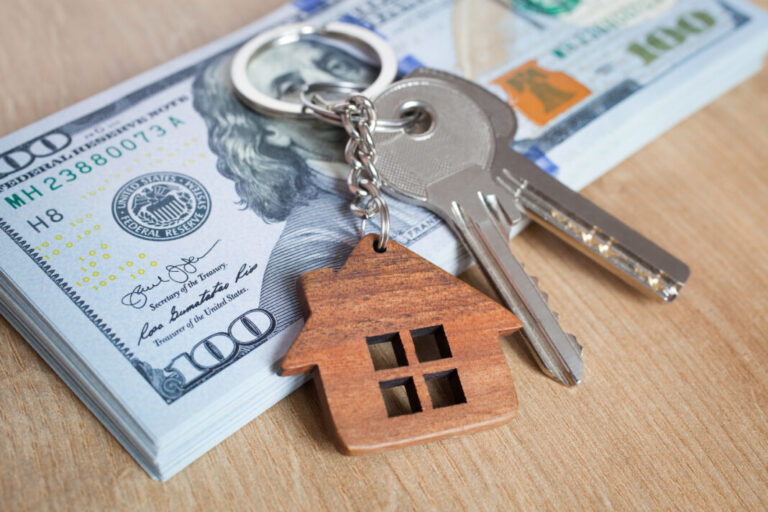The rental market is booming in 2024, and with that comes an increase in rental scams. Scammers are taking advantage of the high demand for housing by targeting unsuspecting tenants with fake listings and fraudulent requests for security deposits.
What are rental deposit scams?
Rental deposit scams are a type of fraud where scammers posing as landlords or property managers collect security deposits and other fees from potential tenants, without ever intending to rent out the property or return the money.
How do Rental Deposit Scams Work?
Scammers typically use a variety of tactics to lure potential tenants, including:
Unrealistically Low Prices: Scammers often list properties at prices significantly below market value to attract potential tenants. They may use real photos of properties, but the price will be lower than the market value. This is a red flag that something is wrong.
Unavailable Landlords: They may claim to be out of town or unavailable for in-person meetings, making it difficult for tenants to verify their identity or the property’s legitimacy. They may also try to communicate with you through emails or texts only.
Demanding Urgent Payments: They may pressure tenants to make quick payments for the security deposit or other fees, creating a sense of urgency and urgency. They may send you emails or texts saying that the property will be rented out to someone else if you don’t pay immediately.
Fake Listings and Photos: They may use stolen or doctored photos of real properties to entice tenants without actually having access to the property. Be wary of listings that have professional-looking photos, but no photos of the interior of the property.
Requests for Wire Transfers or Prepaid Cards: They may prefer payment methods that are difficult to trace, such as wire transfers or prepaid debit cards.
What Are The Red Flags of a Rental Deposit Scam?
There are a few red flags that can help you identify a rental deposit scam:
- The listing price is significantly below market value. Scammers often list properties at low prices to attract potential tenants.
- The landlord is unavailable for in-person meetings or refuses to provide contact information. Scammers may claim to be out of town or use a false identity to make it difficult to verify their authenticity.
- The landlord requests a large security deposit or other upfront fees. Legitimate landlords typically only require a security deposit equal to one month’s rent.
- The landlord asks for payment through a method that is difficult to track, such as wire transfer or prepaid debit card. This makes it more difficult for you to get your money back if you are scammed.
How to Protect Yourself from Rental Deposit Scams
Do Your Research: Do thorough research on the landlord or property manager, checking online reviews, contacting reputable rental agencies, and requesting official documentation. You can also check with the local housing authority to see if there are any complaints against the landlord.
Schedule an In-Person Visit: Always arrange to see the property in person before making any payments. This allows you to assess the actual condition of the property and meet the landlord or property manager face-to-face. If the landlord is unwilling to meet with you in person, that is a red flag.
Avoid Premature Payments: Never pay any upfront fees or security deposits before signing a formal lease agreement. Ensure that the lease agreement clearly outlines the terms and conditions, including security deposit requirements and return policies.
Deal Directly with Established Businesses: Use reputable online rental platforms or work with established property management companies rather than individuals directly.
Pay through Secure Methods: Use reputable payment methods like credit cards that offer fraud protection. Avoid sending money through wire transfers or prepaid cards.
Report Suspected Scams: If you encounter a suspicious listing or encounter a potential scammer, report it to the authorities and the rental platform where you found the listing.
Be Cautious of High Deposits: Be wary of landlords demanding excessively high security deposits. Check local regulations for maximum deposit limits.
Seek Legal Advice: If you fall victim to a rental deposit scam, consult with an attorney to understand your legal options and pursue compensation.
By following these tips, you can help protect yourself from rental deposit scams.
In addition, here are some additional resources that you may find helpful:
- Federal Trade Commission: Rental Scams: https://consumer.ftc.gov/all-scams/rental-housing-scams
- National Association of Realtors: How to Avoid Rental Scams: https://www.realtor.com/advice/rent/rental-scams-and-how-to-avoid/
- U.S. News and World Report: How to Spot a Rental Scam: https://www.globenewswire.com/en/news-release/2022/07/21/2484002/0/en/Most-Renters-in-the-US-Have-Encountered-a-Rental-Scam-at-Least-Once-Survey-Shows-It-s-More-Common-Than-People-Think.html















